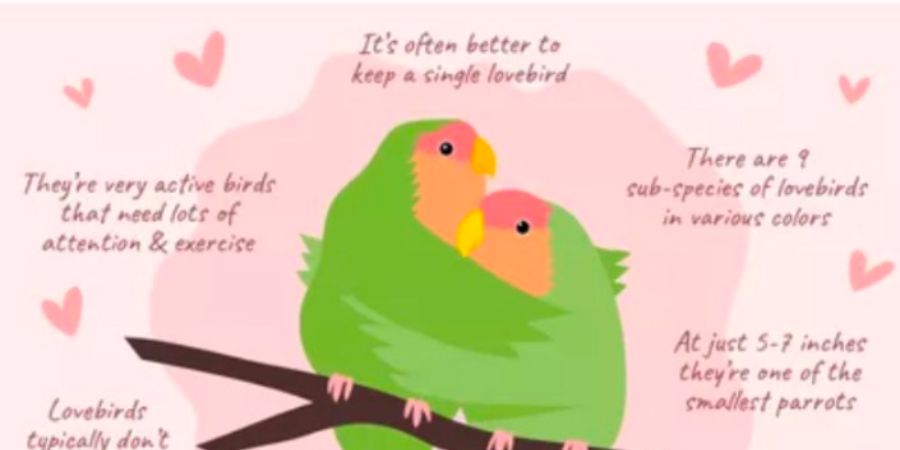

Hiii guys ❤️ any birds lovers.. here🙋♀️ I share some interesting facts about love birds🐦
Lovebirds are one of the most popular parrot species and are not surprising to those familiar with them. Beautiful and intelligent, these little birds have been one of the most popular species of African parrots for over 100 years. But there are many myths about lovers, their behavior, and what it's like to keep them as pets. If you want to know more about what your lovers are like, read the basic facts about these lively birds.
Lovebirds don't usually talk
Despite being a type of parrot and capable of mimicking human speech, lovebirds are not one of the most considered species of talking birds. It rarely chooses to speak, and if it chooses to imitate the sound, it almost always repeats simple sounds like whistles and household noises like doorbells and microwave ovens. Because. It is unclear why some lovers are more likely to imitate speech than others, but it is widely believed that those who learn to speak have been taught from an early age.
There are several types of lovebirds
There are many types of lovebirds. There are nine different subspecies of these little parrots, each with its own characteristics and characteristics. These include Mask Turtle Dove, Black-cheeked Love, Fisherman's Turtle Dove, Nyasata Turtle Dove, Swindern Turtle Dove, Red Faister Dove, Abyssinian Turtle Dove, Madagascar Turtle Dove, and Beloved Peach Faith Dove. increase. The most popular rosy-faced lovebird can be identified by its yellow, green, blue rainbow and bright pink face. All lovebirds are bred for up to 20 years on average, although their appearance and temperament vary depending on the type of lovebird.
Lovebirds are one of the smallest parrot species
Despite being a true parrot, lovers are one of the smallest members of the parrot family. On average, most lovers grow to a length of 5 to 7 inches at maturity, measuring from the beak to the end of the tail feathers. Their small size helped to increase their popularity among people living in apartments and other small spaces. Many of these bird lovers found it easier to raise and care for these small birds than to try to keep larger species of parrots such as macaws and parrots.
It is a widely purported myth that you should never own a solitary lovebird and that if they are not kept in pairs, they will die of depression. While it is true that they are extremely social birds who thrive on interaction and must be socially stimulated, in many cases, bird owners should keep single lovebirds. This is because these birds breed readily in captivity, and most bird owners are not capable of caring for an entire family of parrots. It is also worth noting that birds kept in pairs tend to bond with each other and shun human interaction. Those who would like their bird to be affectionate and open to being handled by human hands have found that it's best to keep birds by themselves and devote as much time as possible to playing and socializing with them so that their needs are met
Thank you ✨……..






